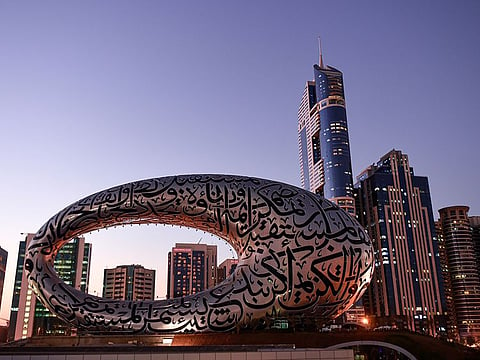Balancing pros and cons between UAE's mainland and free zone licenses
100% ownership change does not mean these benefits will get diluted

This year has kept businesses on their toes, forcing them to react to various challenges and planning a stable future.
One welcome change is the announcement of 100 per cent foreign ownership for UAE mainland licenses. This news created a buzz in the corporate landscape, opening up opportunities as well as raising questions for those already operating in the UAE. The prospect of having full control is obviously attractive.
Still, if you’re a free zone company considering making the jump to onshore/mainland, there are important points to consider.
Sphere of operations
An industry-specific free zone may be more appropriate for your business. Jebel Ali Free Zone or Dubai Airport Free Zone have well-established infrastructure that may suit a trading and logistics company over a mainland location. JAFZA has direct access to its port, and DAFZA access to the airport, making customs and processes much more efficient.
Companies established in Dubai Silicon Oasis or Dubai Healthcare City may benefit from being surrounded by similar businesses that can complement their offering, help win contracts, outsource work, refer clients or potentially join forces.
Structure and activities
Each free zone authority has its own governing rules and regulations. Some offer certain structures and business activities that a mainland licensing authority may not, and industry-specific free zones can have a flexible list of activities that may be more suitable.
If you are considering transferring your license to the mainland, you will need to ensure that your activity and setup structure is available to continue operating under a new governing authority. The pre-requisites for a free zone and mainland Department of Economic Development (DED) authority may also differ.
Plus, free zone licensing issuance and approvals often involve less red-tape, making the license setup and or renewal process much quicker than mainland.
Shareholder profile
A key detail to research before making the switch is what educational qualifications are required for each stakeholder and staff member. Corporate and personal documentation may need to be translated, stamped by the Ministry of Foreign Affairs, and external third-party government approvals may be required for certain activities.
A general manager or shareholder may be required to hold a qualification or complete a mandatory course to operate the business. Real estate companies require courses and qualifications to be completed. Most architectural licenses require a local Emirati to hold certain qualifications and to be listed on the license as the shareholder. (There is no certainty as to whether this may be waived.)
Most mainland consultancy licenses require the general manager or shareholder to complete a management skills placement course and test with the American University in Dubai.
Premises and visas
When registering any UAE company, regardless of mainland or free zone, you must have a registered business address linked to the license. Mainland licenses do not offer flexi-desk or smart desk business facilities, which free zones offer.
The number of residency visas under your company are linked to your business facility rental agreement. One main difference is mainland residency visas are valid for two years whereas free zones' are for three years. Free zone office rental is more expensive, and limited to the free zone jurisdiction than mainland options.
UAE residency visas are limited to the size of the office and can be costly for free zone businesses when they need larger office space and more visas. However, on the mainland, there is a wider choice of space at much cheaper rates than some free zone private offices. There are some bargain mainland real estate options currently on the market that may be suitable.
Flexibility
With a free zone licensed company, you are limited to operating within your free zone jurisdiction. Companies licensed within a free zone and conduct business within the mainland are not compliant with UAE Commercial Companies Law (CCL). The shareholder and general manager can be fined and licenses revoked.
With a mainland license, you will have complete freedom to operate and conduct business directly without having to use a third-party agent or distributor. Furthermore, you can register with the chamber of commerce and be eligible to work with the UAE government.
Keep in mind
A free zone company cannot be transferred to the mainland. The free zone company will need to be formally liquidated and there are several costs associated. All residency visas, current contracts with suppliers and customers will need to be cancelled and re-drafted under the new company, and therefore legal and consulting costs should be considered. Other associated concerns include the corporate bank account, VAT lodgements and trading history.

- Scott Cairns is Managing Director at Creation Business Consultants.
Sign up for the Daily Briefing
Get the latest news and updates straight to your inbox







